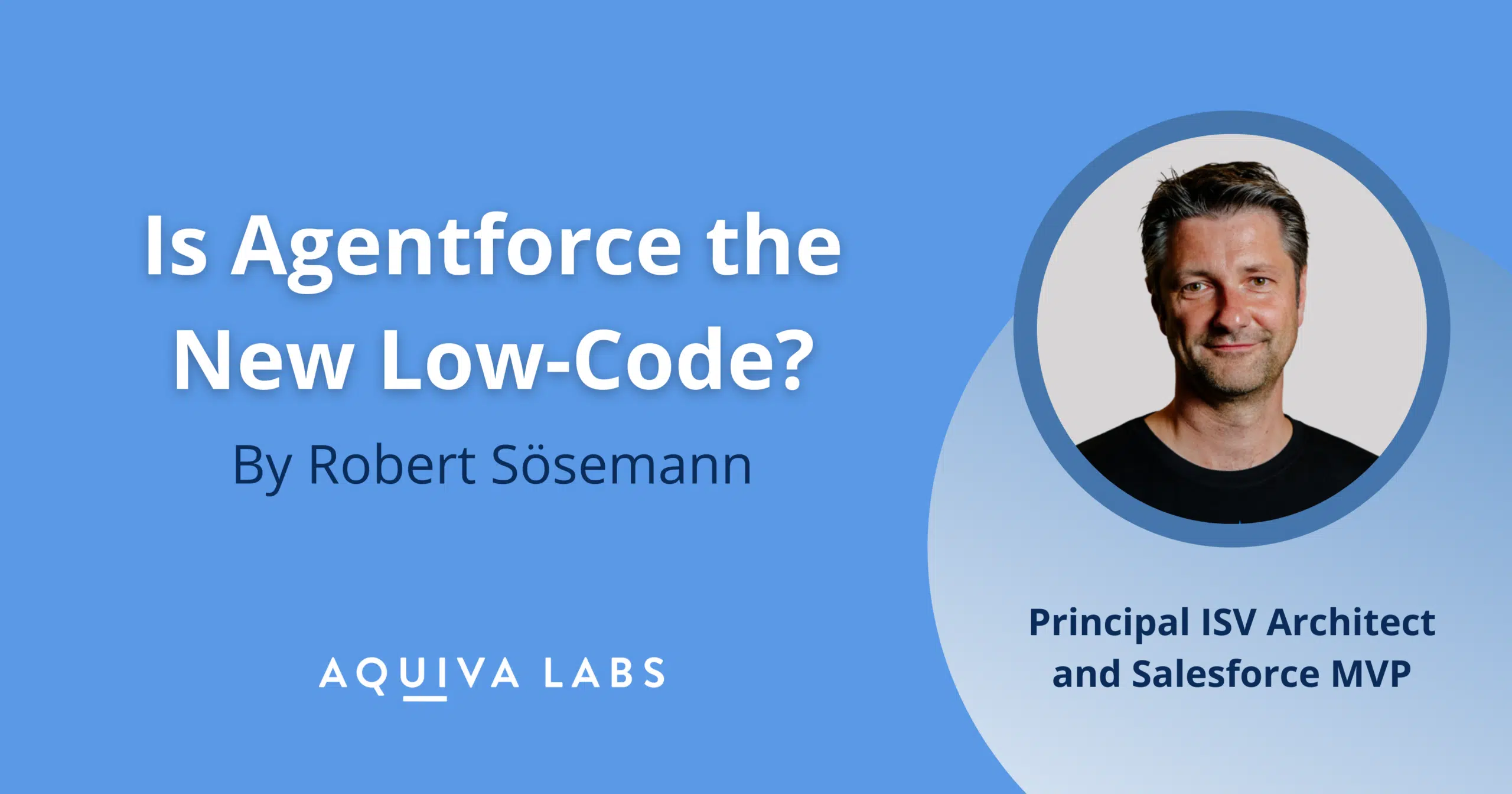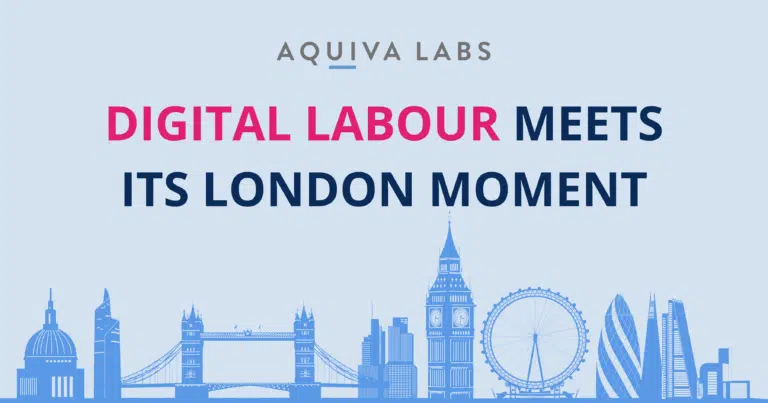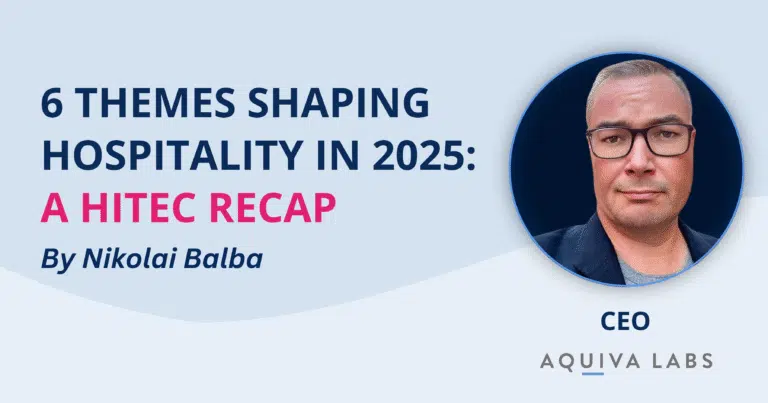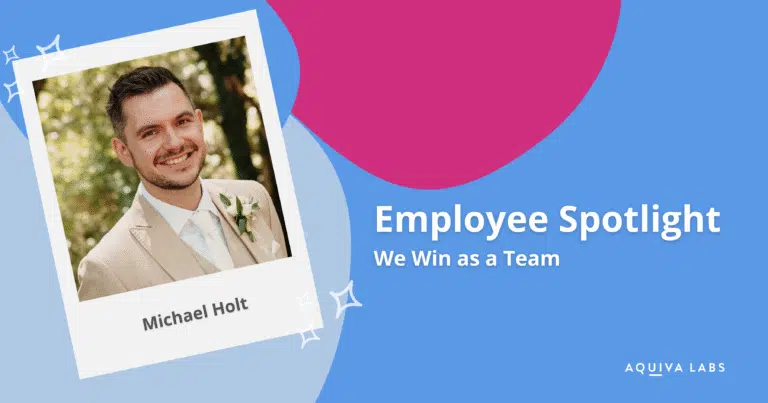Let me say this upfront: I’m already a fan of Agentforce. And that’s despite being very skeptical before Dreamforce. I was still feeling let down by Salesforce’s AI, like Einstein Copilot and all the other components that were announced with great fanfare just a year ago.
Background
But let’s take it step by step. As I’ve shared in various articles, interviews, and conference talks, we were quite early adopters of the generative AI wave. As soon as OpenAI released GPT 4 a year and a half ago, we formed an AI task force and started experimenting with different projects with large language models, vector databases, and agent frameworks. We shared our results with clients and the community as free AppExchange apps and open-source repositories.
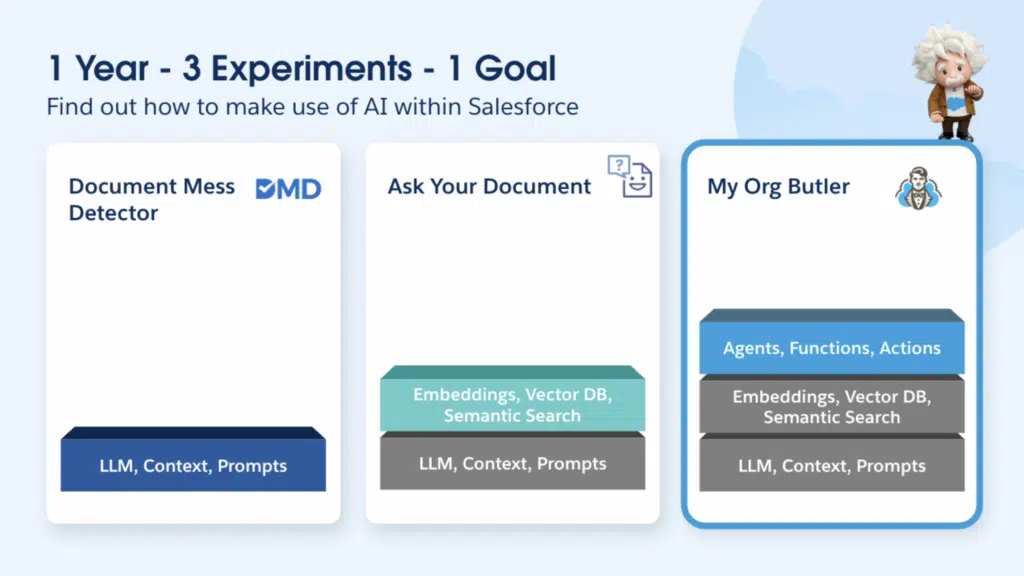
Dreamforce 2023 Experience
When, at last year’s Dreamforce (2023), various native AI features like Prompt Builder, Model Builder, and vector databases in the Data Cloud were announced, we were initially a bit frustrated. All the apps we had painstakingly built using off-platform AI could soon be created with just a few clicks (albeit likely with additional costs). However, our frustration quickly gave way to the realization that, personally, I – and we at Aquiva Labs along with our clients – are ultimately loyal to Salesforce because it allows us to build professional business apps without excessive technical tinkering and manual effort.
DIY AI vs. Salesforce's Native Solutions
In my conference talks, my motto and recommendation to the audience has always been: DIY AI is challenging and not worth it when there are native low-code alternatives from Salesforce.
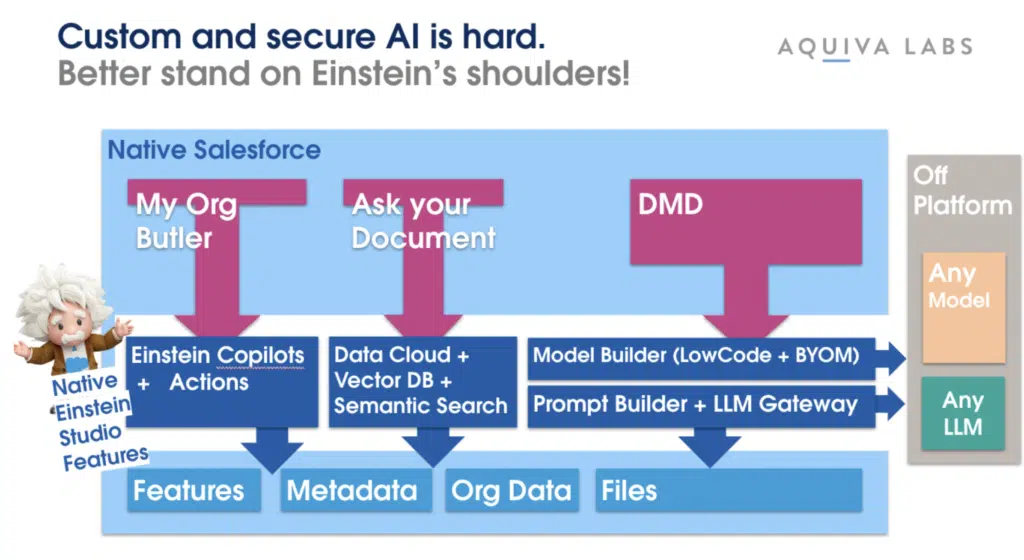
Agentforce and the Shift in Tone
This brings us to Agentforce. What Salesforce delivered up until just before Dreamforce ‘24 was technically usable. However, it was either not generally available, prohibitively expensive, or – and this frustrated me the most – just unusable.
I personally tried to rebuild our open-source apps, DMD, MyOrgButler, and AskYourDocument, using Einstein features like Model Builder, Data Cloud, Prompt Builder, Model API, and Trust Layer. The results – when they were feasible or available – were disappointing.
The general AI disillusionment seen on social media and in the AI stock market was something I could directly relate to in my Salesforce org. And with our clients, who kept wondering when and how they would actually be able to integrate generative AI into their business processes.
The Turning Point at Dreamforce 2024
And then suddenly, the tide seemed to turn – Marc Benioff’s words and concepts started to change. The “Trust” fearmongering turned into talk of billions of agents that would be built by Salesforce customers of all types by 2025.
You could see how an initiative from the CEO sent a wave through the Salesforce ecosystem, stirring up skepticism and confusion until Dreamforce. In my view, the clarity and focus brought by Dreamforce ‘24 ended this ambivalence and successfully transformed it into a spirit of progress.
Most of us at Aquiva Labs had already prepared before Dreamforce by earning the AI Specialist certification. During the conference, we built real agents in our Trailhead orgs, and we could see firsthand that things were genuinely different this time.
The Agentforce Experience
What Salesforce demonstrated in the keynotes was actually immediately available and worked directly in the org, right in front of the keyboard. Unlike the inflexible Copilot from the previous year, it was immediately evident that agents – with their topics and instructions – worked significantly better. Where Copilot struggled even to connect simple requests with actions or hallucinated wildly, agents stayed within defined guardrails. Wonderful. Not because it was something new – no, the OpenAI Assistant API that Aquiva Labs had already used for MyOrgButler a year before worked just as well. But seeing that it now worked directly in Salesforce with much less effort was exhilarating.
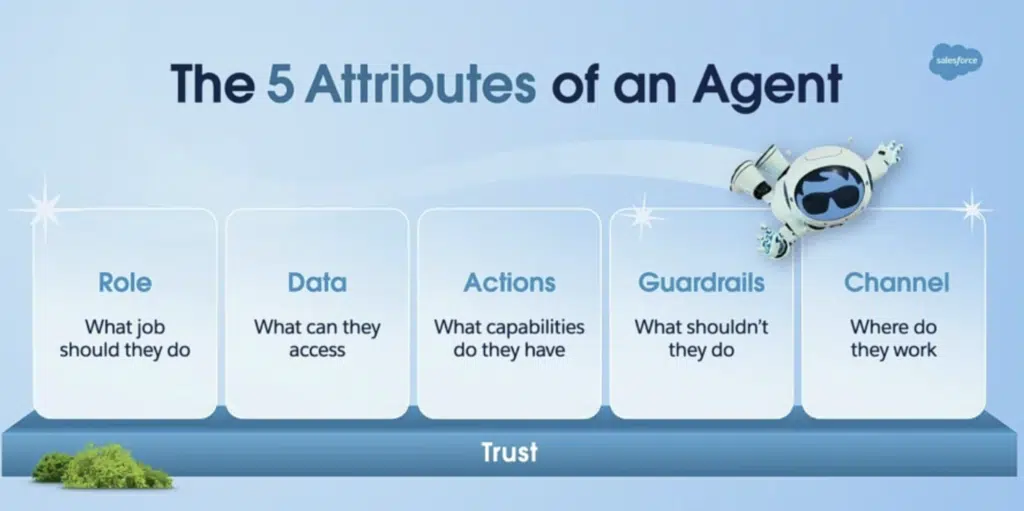
Another reason for my enthusiasm was seeing Salesforce approach pricing and availability in a pragmatic and efficient way. Unlike the previous year, when everything seemed to require a Data Cloud or Einstein license, it was announced that for agents, you would only pay for actual production use with end customers (2 dollars per conversation). I liked this because it meant that virtually any developer or admin could experiment and play with it, with costs only incurred once there was practical, beneficial use in production.
Addressing Skepticism and Aquiva’s Involvement
To readers who don’t share my enthusiasm and point out that they still don’t have an org with Agentforce, I say: you’re right, but I’ll bet that this will change by the end of the month. As a PDO and SI partner, Aquiva has access to information and orgs that support my claims. Aquiva has recently created a POC for the hospitality industry leveraging Agentforce, and we know that the artifacts will be distributed in 1GP and 2GP packages as an app by the first quarter of 2025.

And that brings me to the topic hinted at by the somewhat clickbaity title (which I’ll be able to revisit and support with real-world experience in a few months): Will building apps on the Salesforce platform significantly change with Agentforce? Yes, I’m convinced it will. Agents and prompts are the new level of abstraction for defining business logic – not in the form of graphical flows but as structured instructions like agent topics or action descriptions.
Agents, Code, and Changing Developer Roles
Agents won’t completely replace traditional, deterministic code, whether it’s Apex or Flow. No, that’s still important. But what nerds, like us, often call “glue code” will be replaced by smart, LLM-based reasoning engines. Where verifiability is crucial, we’ll still rely on old-fashioned code; where flexibility and creativity are needed, developers will hand over to generative AI and agentic workflows.
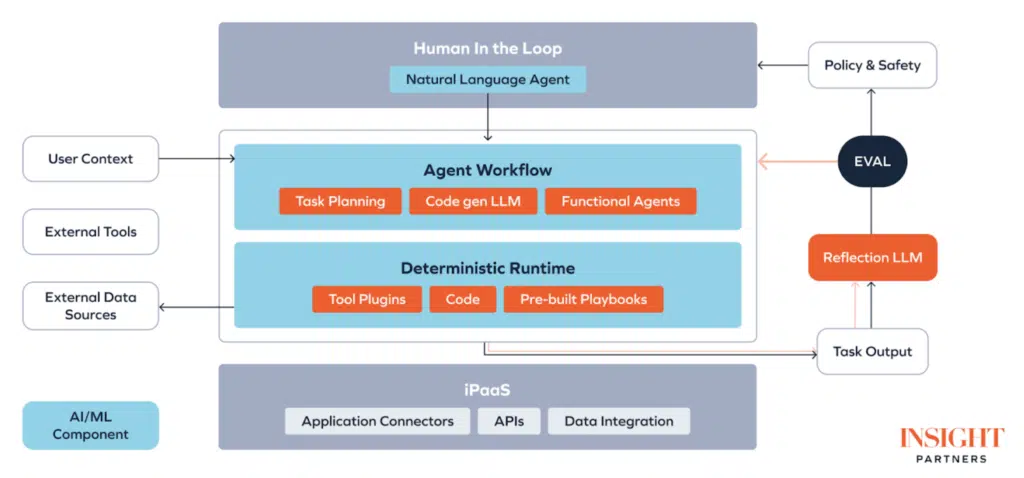
This will relieve pro-code developers, allowing them to focus on interfaces, connectors, and well-defined services, while empowering process experts who aren’t developers to directly define software rules through natural language instructions – without the “broken telephone” effects of intermediaries.
The Impact on UI Development
I believe the biggest changes from generative AI will be in user interfaces. Building UIs has always been a tedious task for me as a developer, so I was quite happy to see platforms like Salesforce often extract UI from underlying information, such as the data model, making it customizable without code.
After seeing Salesforce’s Canvas demo, I’m convinced that in the future, UIs will be generated dynamically, adapting to the specific situation and preferences of the current user – based on standard components. And we will still need good UX developers for those components.
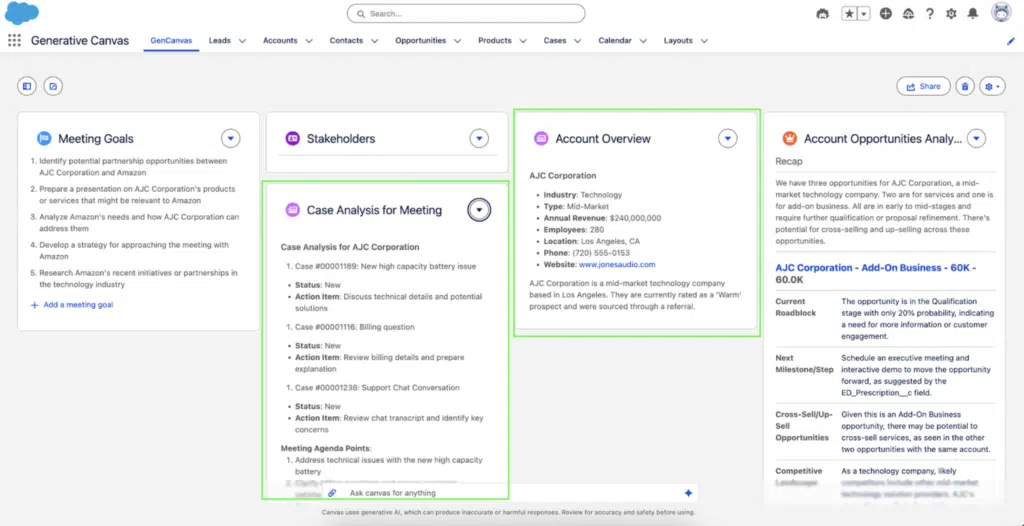
Conclusion and Future Outlook
To sum up, I am convinced that Agentforce is not just hype like some of the other Dreamforce announcements over the past decade. It is the first step towards creating a new kind of business application – apps that can more flexibly adapt to user needs, become obsolete less quickly or need to be rewritten due to their complexity, require fewer engineers, and integrate key stakeholders more closely and effectively. I am happy to see that experts like Insights Partner share my belief and excitement here.
However, both I and we at Aquiva Labs know that we still have a way to go before we fully reach that point. In the meantime, you shouldn’t just wait – you should use what’s already feasible, and there is a lot. Get in touch with Aquiva Labs by filling out the contact form below or message me directly on LinkedIn so we can show you what you can do now to be better prepared for this new era.
Written by:

Robert Sösemann
Principal ISV Architect and Salesforce MVP

